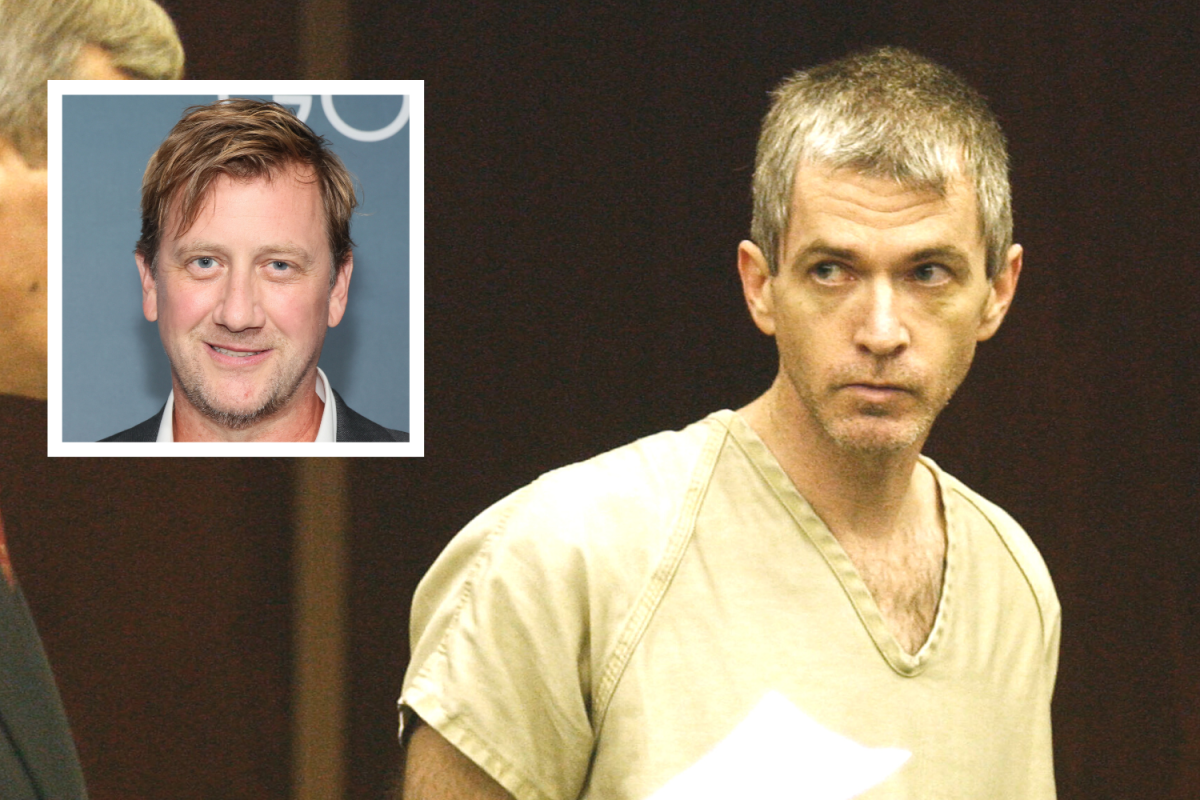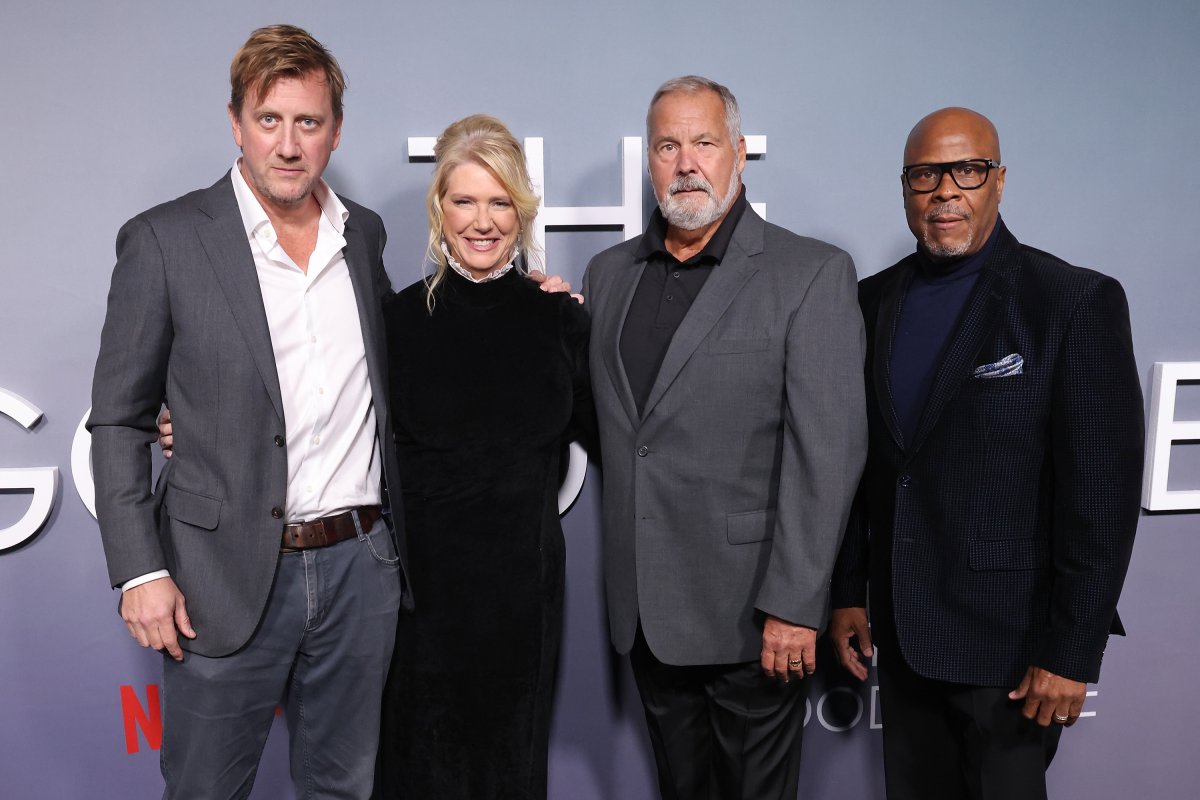Before nurse Amy Loughren helped police capture her fellow colleague, the serial killer Charles Cullen, there were several others who attempted to do so and "risked their careers" by becoming whistleblowers, author Charles Graeber told Newsweek.
Graber penned The Good Nurse: A True Story of Medicine, Madness, and Murder, the nonfiction book that inspired Netflix's film of the same name starring Jessica Chastain and Eddie Redmayne. For his book, Graeber interviewed Cullen extensively and also heard the stories of those who tried to stop Cullen during his 16-year career as a nurse.
Cullen is currently serving 18 consecutive life sentences for the murders of 29 patients —committed in nine hospitals between 1988 and 2003—but authorities believe he is responsible for the deaths of 400 people. He killed patients by giving them a lethal overdose of drugs like digoxin and insulin, which he often would inject into IV bags in a storeroom.
'Good Nurse' Author Charles Graeber on the Other Whistleblowers Who Tried to Stop Charles Cullen

While The Good Nurse focuses on Loughren's part in the investigation into Cullen, there were other people who came before her with evidence of Cullen's crimes. Some evidence even came to light at the first hospital he worked in Saint Barnabas Medical Center in Livingston, New Jersey, Graeber explained.
The stories of these whistleblowers will be shared in Netflix's new documentary Capturing the Killer Nurse, set to premiere on November 11.
"It doesn't tell the full story because it can't, you can't do that, but it lays out the more complicated story, the history. You see more of the investigation and understand what Detectives [Tim] Braun and [Danny] Baldwin really did," Graeber said. "And it still honors Amy and the heroic work that she did, as it stood.
"But it also shows you other whistleblowers who had come forward earlier, who also tried to stop Cullen, in fact even more actively you might say because Amy was really the last—at her hospital, she was the last nurse to talk with the detectives. She was the most protective of Cullen. She was the one who felt they were picking on him for no reason at all [and] she was the last to see that he was a killer.
"It's different in the movie, of course, but there were other hospitals and other whistleblowers who risked their careers and they worried perhaps even their lives—but certainly their careers, to do the right thing, which is hugely unpopular and it does not turn out well for whistleblowers.
"Whistleblower stories are very happy in the movies. But the lives of those whistleblowers, they almost always lose their jobs, they feel pressured to leave, they are never trusted by their superiors again, they almost always have to move on. It really ruins their lives. And those people also get a moment to tell their truth out loud in this story, and so I'm really pleased with that."
It was due to Loughren that Cullen finally confessed to his crimes in 2003. Cullen had refused to confess before Loughren was brought into the interrogation room by police, where she suggested that they also saw her as a suspect in the case—and so he would be her "protector" if he revealed what he had done and proved her innocence.
"Of course, she took great risks, personal risks. She put herself out to finally stop a serial killer, and for her that big risk was even more personal than depicted in the film," Graeber said of Loughren. "Because she really thinks of herself as a protector and a friend [...] and Charlie seemed like someone who needed protection, and she was his protector and defender, and her friend.
"And to have to decide between betraying a friend, possibly unfairly betraying a friend, and finding out for sure whether or not her friend was in fact a serial killer that was harming the very patients that she was there to protect, and whether she had been, in some way, protecting [him] and, she worried, facilitating those crimes—that was an entirely personal decision and a really heartrending one for her. It challenged her self-definition, and that's on top of her health concerns at the time."

Graeber added that when viewers are able to watch the Netflix documentary, they will feel "outrage" over what it reveals—although the whole story about Cullen's career is explored even more in his book than it is in the feature film or documentary.
"Film is so powerful and so essential and immediate, in some ways [it's] intuitive. You see the real people who are breaking down in tears at the memory of what happened and that hits you in an entirely different way," he said. "But when you hear the stories you really understand that they had him, they had him caught.
"They had evidence at the first hospital and they had evidence in the fifth hospital, and people named him specifically. Other nurses were blamed for what he did and said 'No, it's this guy,' and that people were fired for [it]. It should have been a police matter over and over again. Despite all that, [Cullen] continued to the point that you finally get to him in the film."
Sharing details of the evidence that was available, the author said there were many "fascinating stories" of whistleblowers who had tried to get people to take their accusations against Cullen seriously and stop him once and for all.
"There were some people that did understand what was happening in the hospital before Amy did, but were tied in with the administration some way," Graeber explained.
"There was a lot of fear, and there were board meetings about what to do about this problem. They had patients that were dying essentially of overdoses and they wanted to do an internal investigation first. That internal investigation went on for months, and it was unclear at that point whether there would ever be anything other than an internal investigation.
"Part of their investigation was to see if they could at least narrow down who might be responsible, be it an accident or otherwise. And as you know from the film, [with] these double medication errors, it's almost impossible to make two mistakes that lead to the same equation."
"But they wanted to see if they could work backwards with the chemistry and figure out what time someone would had to have gotten that drug in order for a person to have that adverse reaction when they did," he said, referring to one example. "And so one of the pharmacists in the hospital was charged with figuring that out. Those are complex calculations and she wanted help with the math.
"She called the New Jersey Poison Center and tried to keep it just to the math and just the chemistry. And the guy on the other end of the line, a guy named Bruce Ruck, quickly sussed out that she wasn't asking a theoretical question, and that the question she was asking strongly indicated that someone was doing this on purpose and she had a police matter and it was the first time you hear it.
"And he became a safe haven for her and said 'You can talk to me we're going to figure this out.' They called back and forth. Eventually, Bruce Ruck's boss, Steven Marcus, called the hospital. They had meetings and so forth. It was only in that final meeting when he said, 'Look, you have a police matter. You've been put on notice for this. You need to get on top of this immediately. And by the way, all calls from New Jersey Poison Center are on recorded lines. This has all been on tape.' It was really only after that the police somehow got involved.
"So that role, it's in the book, it's a very dramatic moment. It was in the screenplay, I think, at one point. But you know this would have been a three-hour movie and that's just one aspect. I'm really glad that those people who were also essential in stopping a serial killer will have their moment to tell their story.
"I think it's really very, interesting and compelling, and they're heroes as well."
The documentary Capturing the Killer Nurse will be released via Netflix on November 11, while the feature film The Good Nurse is currently streaming on the same site. Additionally, Charles Graeber's book, The Good Nurse: A True Story of Medicine, Madness, and Murder, is available now.
Correction 11/08/2022 11:28 a.m. ET: This article was updated to correct the misspelling of Bruce Ruck and Steven Marcus' names.
Uncommon Knowledge
Newsweek is committed to challenging conventional wisdom and finding connections in the search for common ground.
Newsweek is committed to challenging conventional wisdom and finding connections in the search for common ground.
About the writer
Roxy Simons is a Newsweek TV and Film Reporter (SEO), based in London, U.K. Her focus is reporting on the ... Read more
To read how Newsweek uses AI as a newsroom tool, Click here.








